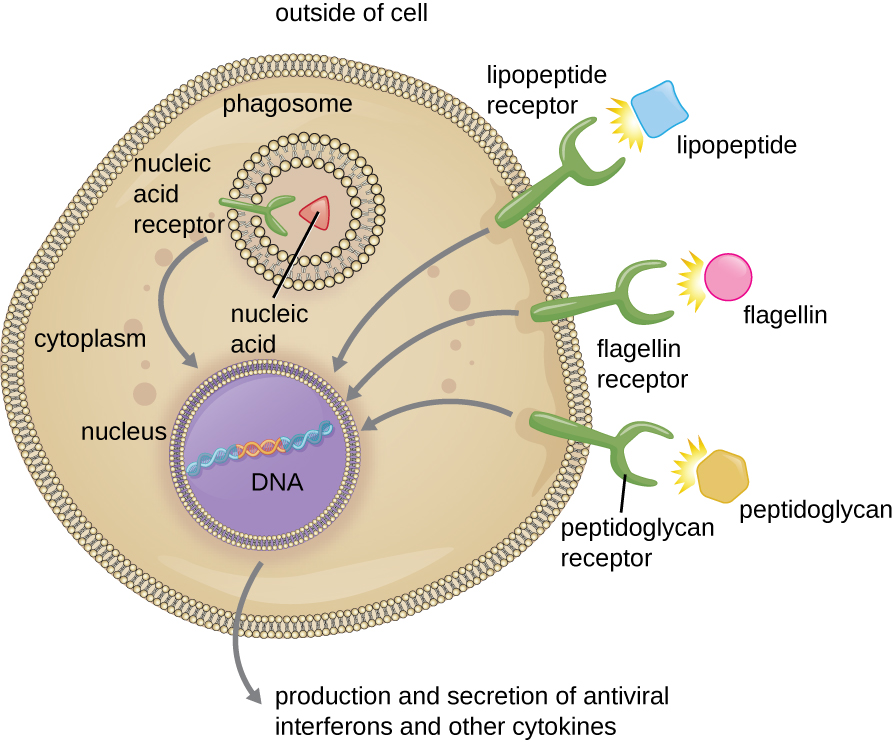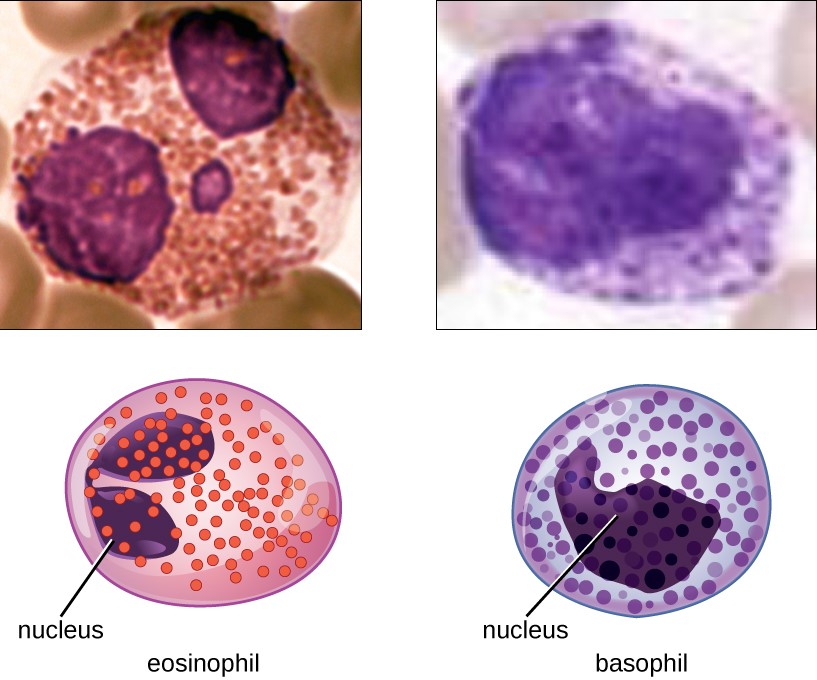Playlist
Show Playlist
Hide Playlist
Basic Concepts of the Immune System
-
Slides Basic Concepts of the Immune System.pdf
-
Reference List Pathology.pdf
-
Download Lecture Overview
00:01 Hello and welcome. 00:02 This next series of talks are going to be about the immune system and how the immune system can cause pathology, so immune mediated injury. 00:13 In general, the immune system is a good guy. 00:17 The immune system is there to defend us against infection, it turns out because tumors generate foreign antigens. 00:24 We also use the immune system as a surveillance mechanism. 00:28 And it probably protects us from malignancy up to a point as well. 00:35 How does it do this? How does the immune system do its job? Basically, because it can distinguish self from non self, that seems very straightforward and self evident, except when you think about it. 00:47 Let's get down to the molecular level. 00:49 Think about the amino acids, it's the same amino acids bacteria in us, it's the same sugars, me and us, us and them. 00:58 It's the same lipids as an M. 01:00 So how we actually can recognize a 3-dimensional conformation and say, "That's me, leave me alone." versus, "Oh, that's not me, I need to attack that" is not trivial and it's really kind of an important overall concept. 01:14 We're going to just kind of glide over the surface without getting too much in depth. 01:18 But keep that in mind. 01:20 Once the immune system is triggered, once it says, "Hey, that's not me." I need to respond to that. 01:27 It brings to bear a whole host of pathways that allow it to respond and hopefully clear whatever invading army is coming into the system. 01:38 They're redundant, they're overlapping, but the responses are many and multiple. 01:43 But once I provide for you, in the next series of talks, a toolkit, you'll be able to predict pretty reliably what is going to happen if I elicit this particular response or that particular response. 02:00 Their job is to clear, to kill whatever has invaded and to clear the debris. 02:06 There's a potential however, for a lot of damage, so you can have too exuberant a response. 02:12 You can just have too many neutrophils, too many macrophages making too many mediators and cause damage in that way. 02:20 You can also have, as we mentioned, you can have autoimmunity, you can have a response to self. 02:27 That happens because we just don't eliminate those self reactive clones. 02:32 Okay, next slide of big picture concepts. 02:36 So the responding cell recognizes that there is something wrong, we'll talk in the next series of talks about how it knows that something is wrong. 02:46 Those responding cells by themselves can't do very much. 02:50 A single cell probably doesn't make much inroads when it comes to getting rid of an invader. 02:57 But if I turn it on, and it proliferates, now we're talking, now I've got an army of like-minded cells recognizing the same thing that can work together and eliminate whatever is going on, pathogen or tumor. 03:15 Those responding cells by themselves, in many cases, can't do the full job, they need to recruit in additional cells. 03:23 So we will see in the next few slides that if I activate a T cell population. 03:29 It will make cytokines to recruit in macrophages and neutrophils, who can do a lot of the heavy lifting. 03:35 So I need to have some something, some cell that can initially say, "That's bad", and then who can proliferate, make more of itself, and then pull in a whole bunch of buddies to do battle with whatever the invader is. 03:51 There gonna be a number of mediators produced. 03:53 So it's not just killing, it's not just, you know, shooting bullets at each other. 03:58 But in fact, there's going to be various agents, nerve gases, not nerve gases, but various things that are secreted into the environment. 04:06 So those mediators are going to be produced, and they will potentially have good things to do, but could also be pathogenic. 04:13 And eventually, hopefully, we, our body, our immune system is successful, we remove the stimulus. 04:21 And/or we establish feedback inhibition to turn the whole system off, and the sponsor resolves. 04:28 If we don't carefully regulate those steps, we just fight and fight and fight and fight, which can lead to scarring, more tissue damage, etc. 04:37 Okay, so those are the big kind of overarching concepts. 04:41 Let's dive a little bit deeper at this point. 04:43 So there are two basic flavors of the immune response. 04:46 And when I talk about immune response, I'm not just talking T cells and B cells. 04:50 I'm actually talking about the innate immune response, which is going to be neutrophils and macrophages and complement. 04:56 So various components that are there. 05:00 And having nonspecific immunity, and we're going to be talking about adaptive immunity on the right hand side. 05:05 Those are going to be the T cells the T lymphocytes, the B lymphocytes, and antibodies produced by B lymphocytes. 05:12 They work in, in sequence. 05:16 They also cross talk and collaborate to be the most effective in dealing with infection or damage.
About the Lecture
The lecture Basic Concepts of the Immune System by Richard Mitchell, MD, PhD is from the course Immune-mediated Diseases.
Included Quiz Questions
What does the immune system defend against?
- It defends against infections and tumors.
- It defends against self-antigens.
- It defends against responding cells.
- It defends against mediators.
- It defends against effector cells.
How can innate immunity be described?
- It is nonspecific.
- It is adaptive.
- It is specific.
- It is short-term.
- It is long-term.
How can adaptive immunity be described?
- It is specific.
- It is innate.
- It is nonspecific.
- It is short-term.
- It is long-term.
Customer reviews
5,0 of 5 stars
| 5 Stars |
|
1 |
| 4 Stars |
|
0 |
| 3 Stars |
|
0 |
| 2 Stars |
|
0 |
| 1 Star |
|
0 |
Awesome speaker! Explains things well and speaks in a uniform matter that is easy to follow.





